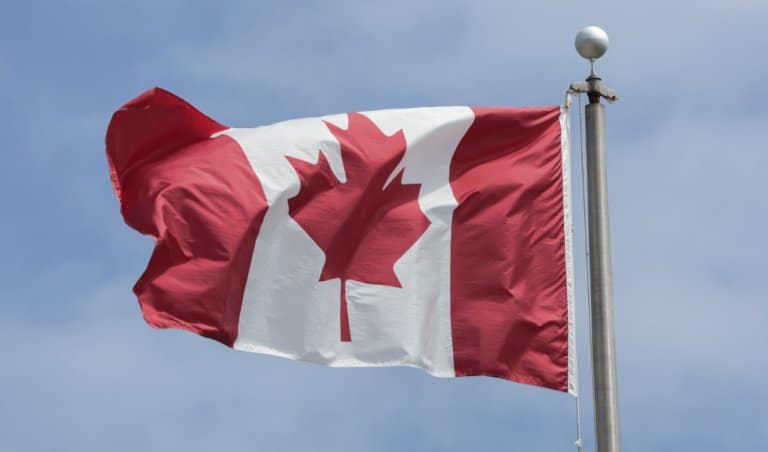
The Canadian student visa process can be tricky for international students. With so many rules, deadlines and requirements to follow, it can be challenging to keep track of things — and the numbers reflect this reality.
Around one in three Canadian student visas were rejected in 2019, followed by 60% in 2022, the Indian Express reports. Information from Immigration, Refugees and Citizenship Canada (IRCC) shows that they reject around 30% of study visa applications.
Even if you get your student visa, there are rules you still need to follow to maintain your status as an international student.
Don’t worry, though. We address the things you should know about the Canadian student visa process to help you get your student visa and not lose your student visa.

Don’t make these mistakes during the Canadian student visa process. Source: Daniel Slim/AFP
Canadian student visa process: 5 mistakes to avoid when applying for a new student visa
1. No study plan
Remember to submit a study plan or a letter of explanation when applying for a Canadian student visa.
IRCC recommends that the letter should explain why you want to study in Canada and your responsibilities as a student.
Question: How to write a study plan for a Canada visa application?
Your study plan should contain a logical, genuine rationale about how studying in Canada will help you advance your professional goals.
The plan should include the following:
- A brief introduction telling the visa officer what to expect in the rest of your document
- The purpose of your study
- Name of the school, your intended programme, and what you are applying for
- Educational background
- Work experience (more relevant if you are a working professional)
- Funds available
- Post-study plans
2. Applying too late
Like any student visa application, always give yourself enough time to prepare the necessary documents.
There’s always a chance you might have missed out on something important.
Plus, you would need to provide your biometrics when applying for your student visa, which takes time.
Question: How long does it take to get a student visa to Canada?
If you’re a legal resident in certain countries, IRCC states that you may be able to get your study permit faster by applying online through the Student Direct Stream.
In that case, expect your student visa application to be processed within 20 calendar days after you provide your biometrics.
A regular study permit application has different processing times since the period depends on the type of application and where it is processed.
The good news is that you can check the processing times for applications submitted inside and outside Canada here.

Use a notebook or a note-taking app to ensure that you don’t miss out on anything when applying for your Canadian student visa. Source: Ian Tuttle/Getty Images North Ameirca/Getty Images/AFP
3. Poorly organised documents
Spoiler alert: there are a lot of documents that you need to keep track of when applying for a Canadian student visa. Here are two tips you can follow:
- Once you create a profile on the IRCC website, answer the respective question and review all the documents requested in the portal.
- Check the official immigration document checklist for any specific instructions that may apply to your country and type of application.
Question: What are the documents required for a Canada student visa?
The IRCC website states that you need the following documents for a Canadian student visa:
You may also need:
- a letter of explanation
- an attestation of issuance of your Quebec Acceptance Certificate (CAQ)
- a medical exam
- a custodian declaration (minors only), or
- other documents that the IRCC may request
4. Lack of proof of funds
The logic is simple: you should have the financial means to study in Canada, which includes having enough money to pay for your tuition and living expenses.
A lack of proof of funds can jeopardise your student visa application.
According to IRCC, you can prove your funds with the following:
- proof of a Canadian bank account in your name, if you’ve transferred money to Canada
- Guaranteed Investment Certificate (GIC) from a participating Canadian financial institution
- proof of a student or education loan from a bank
- your bank statements for the past 4 months
- a bank draft that can be converted to Canadian dollars
- proof you paid tuition and housing fees
- a letter from the person or school giving you money, or
- proof of funding paid from within Canada, if you have a scholarship or are in a Canadian-funded educational program
Question: How much funds are required for a Canada student visa?
Generally, a student is expected to have 10,000 Canadian dollars if they are staying outside of Quebec and CA$6,569 if they are staying in Quebec. These figures do not include tuition.

A lack of employment prospects in your home country can cause a visa officer to reject your student visa application. Source: Jeremy Chan/Getty Images North America/Getty Images/AFP)
5. Ties to your home country
A student visa is a temporary permit to pursue your studies in Canada. Upon graduation, you should return to your home country.
If the visa officers feel that the applicant has no intention of returning to their home country after the course completion, they may reject the application.
Question: How do I explain home ties for a Canadian visa?
If you are a mature student, you can show ties to your home country by owning a property.
For younger students, here are the options you can consider:
- Providing a letter of reference from previous employers to show that you are connected to your professional network and can easily apply for jobs again in your home country after completing your course
- Showing the pages of your passport with travel stamps and visas to prove that you respect other countries’ immigration rules and can return home
Mistakes you should avoid once you have your Canadian student visa
1. Working more than 20 hours per week during the academic term
This applies to both on- and off-campus work. Your working hours are capped at 20 hours weekly to ensure that you have ample time to dedicate your energy to your studies.
Taking a full course load while working part-time isn’t advisable, as the pressure can be too much.
You may, however, work full-time without a work permit during the summer as long as you maintain your student status at your designated learning institution (DLI).
Canadian Immigration Minister Sean Fraser has also just announced that international students are allowed to work for more than 20 hours per week from Nov. 15 2022 to Dec. 31, 2023, according to CIC News.
2. Switch to another uni without approval
Since the DLI is tied to your study permit, changing unis is complicated.
To transfer unis, you must first maintain your student status in Canada. Contact IRCC immediately if:
- you’re changing universities as a post-secondary student changing schools
- have a co-op work permit and have changed to a co-op programme in another university or
- need to make changes to your study permit conditions
Your old uni will unregister you as a student if you do not notify IRCC, which could lead to losing your study visa and eligibility to remain in the country.

Remember to maintain your grades if you want to stay enrolled in uni for your Canadian student visa. Source: Brandon Bell/Getty Images North America/Getty Images/AFP
3. Poor academic performance
While holding a Canadian study visa, you must be enrolled at a DLI.
The exact academic requirements can vary depending on the institution and programme, but students are generally expected to maintain a minimum GPA to remain in good academic standing.
According to the University of British Columbia, an officer may question whether a student who failed many courses over several terms is making reasonable progress towards completing their programme.
4. Having a criminal record
Generally, you are not allowed to enter or stay in Canada if you are “criminally inadmissible.”
The term describes those who are not allowed to enter or stay in the country because they have committed or been convicted of a crime. These crimes may have occurred in or outside Canada.
The person who committed the crime must not have received a record suspension (formerly known as a pardon) or been rehabilitated under the Immigration and Refugee Protection Act.
Misusing ChatGPT can also be construed as a crime — read more about that here.










